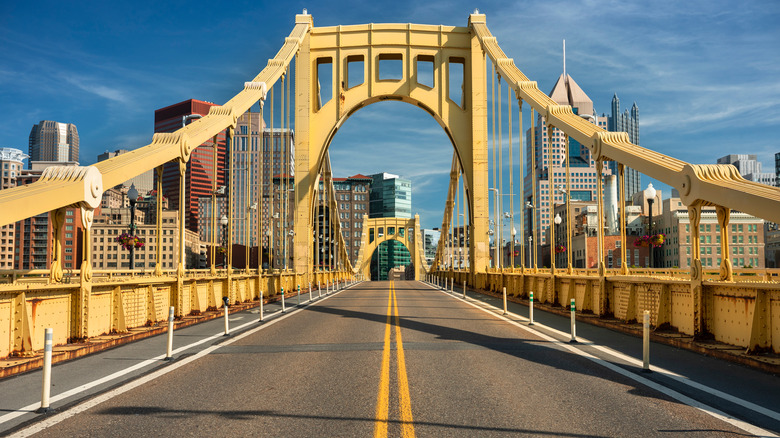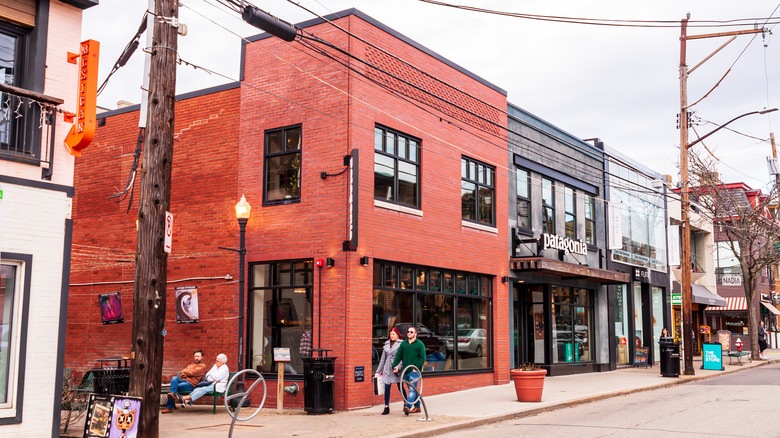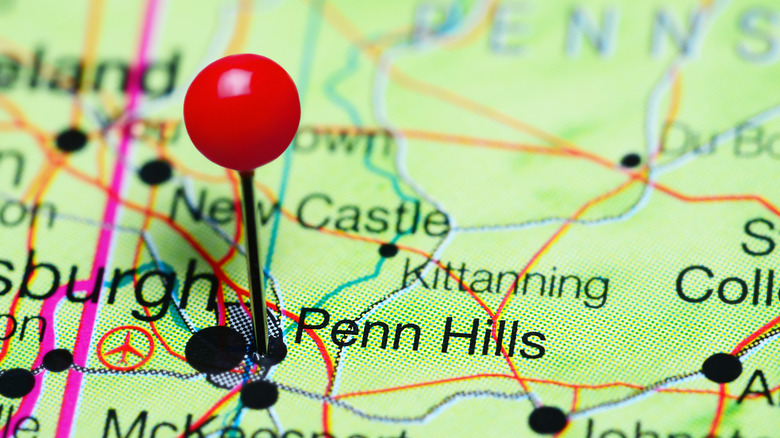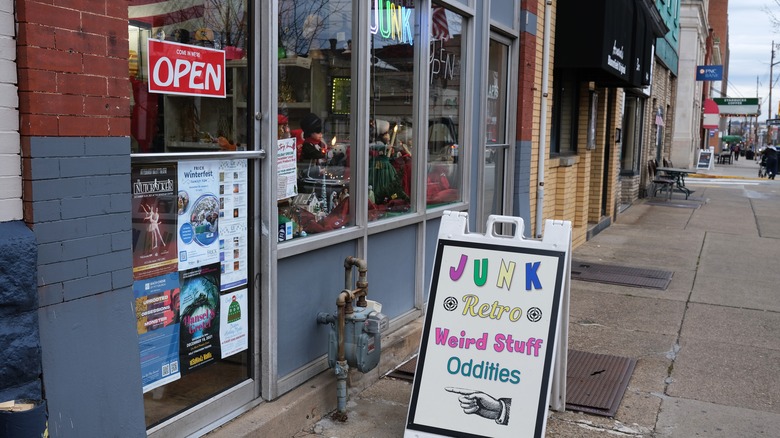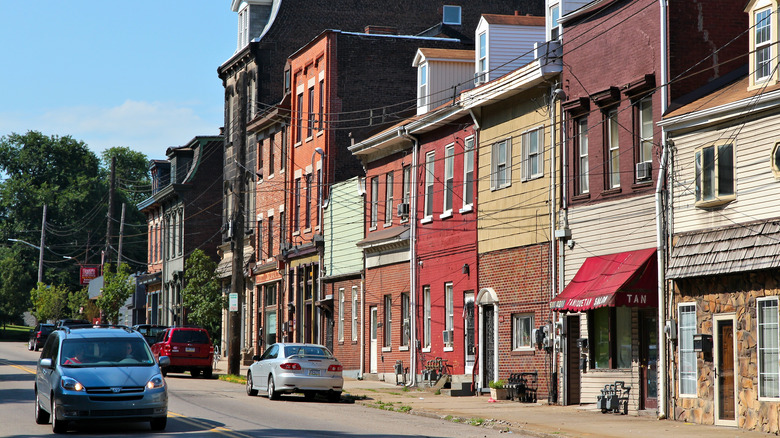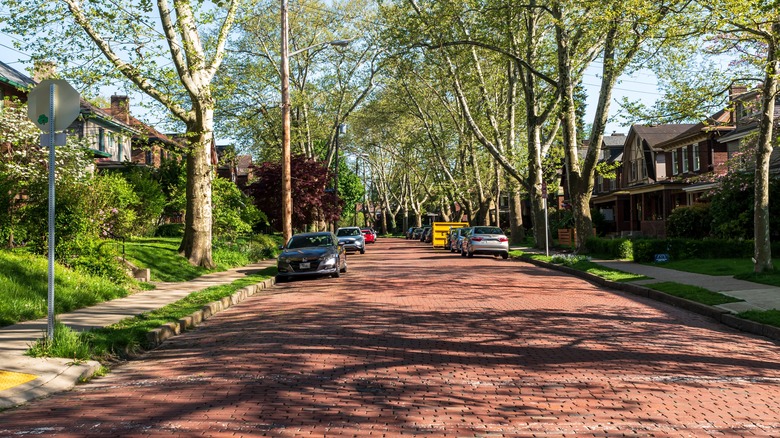The 5 Best Neighborhoods To Live In Pittsburgh If You're LGBTQ+
There are a lot of factors to take into account when you're moving to a new city — availability of jobs, access to affordable housing, where the best schools are located — but one of the most important things to keep in mind is a little less exact — the feel of your neighborhood. If you're a member of the LGBTQ+ community, this is especially important. Finding an area where you feel safe, accepted, and supported by like-minded individuals can have a major impact on your daily life and mental health.
Luckily, if you're planning to move to Pittsburgh, the entire city has a reputation for supporting and caring for its LGBTQ+ population. The city earned perfect marks on the Human Rights Campaign's Municipal Equality Index Scorecard, meaning that it has infrastructure in place to prevent the spread of hate and provide resources for the LGBTQ+ community. With that being said, however, there are still certain neighborhoods that are more popular among the community, so keep reading if you want to learn the top locations to check out in Pittsburgh if you're LGBTQ+.
Shadyside
If you ask anyone from Pittsburgh what the most popular LGBTQ+ neighborhood in the city is, their answer will likely be Shadyside. This spot has a history of free thinking and open expression and has acted as a safe space away from homophobia and transphobia in the past. In the 60s it was known as Pittsburgh's Greenwich Village, and it's still awash with art, music, and an array of local businesses and gay bars like 5801, known for their welcoming service and drag brunches (via NEXT Pittsburgh).
One of the best parts of this area is its walkability. You can easily complete all of your errands for the day with a quick stroll, so if you don't have a car, you're looking to reduce your environmental impact, or you want to save some money on gas, this neighborhood is a great option. Shadyside is perfect if you want to live the true city life — it's right in the middle of all the action.
Penn Hills
If you'd rather live a bit more of a quiet life, Penn Hills might be the spot for you. This area is technically a suburb of Pittsburgh, but its proximity still makes it feel like part of the city's area. This neighborhood is much more suburban and spread out than somewhere directly in Pittsburgh's city center, so it's great if you're planning to raise a family or want to get away from the hustle and bustle of downtown. Its location just east of the city means you still have access to gay clubs and organizations like the PGH Equality Center, but it has a much more laid-back vibe throughout the week.
It also comes with the added bonus of being much more affordable than any of the neighborhoods directly in the city. According to Niche, the average rent is only $862, much lower than the national average of $1,096 per month. Despite being fairly suburban, the area is still popular with young professionals and offers an array of nightlife, so you can enjoy your nights out without being directly in the middle of the action.
Bloomfield
According to Visit Pittsburgh, the name for the area comes from George Washington's journal entries describing his journey through the flowery fields of Pittsburgh throughout the Revolutionary War, but it's safe to say that Bloomfield has evolved into a much more urban spot than the former president's 18th-century description. Throughout its long history, Bloomfield became known as the city's Little Italy because of its rich Italian heritage, but this area has evolved into a hip, young location that offers more than just delicious cuisine.
This neighborhood has become an eclectic mix of cultures and lifestyles, touting attractions like the anti-profit The Big Idea Bookstore, the classic P-Town Bar, and the annual Pittsburgh Pride Festival, amidst a collection of other quirky shops, mouth-watering restaurants, and exciting nightlife. If you're looking for a spot with a colorful atmosphere, rich heritage, and a unique event for just about every night of the week, look to the cultural hub that is Bloomfield.
Lawrenceville
If you haven't been to Pittsburgh in a while, you may be shocked to hear that Lawrenceville is on this list. The neighborhood began as a primarily industrial area, but after the collapse of the steel industry in the 80s, it certainly felt the effects of the economic downturn. In the past decade or so, however, this area has undergone a major transformation and subsequent facelift, and it's now one of the most popular spots for Pittsburgh tourists and residents alike (via Discover the Burgh).
Cheap housing attracted a wave of young newcomers to the area, and soon enough, trendy restaurants, bars, and boutiques began flooding in, as is the story with many struggling neighborhoods across the United States. According to the Lawrenceville Corporation, however, the area is doing what it can to mitigate the negative effects of gentrification, promoting ethical, sustainable growth within the community, and protecting the neighborhood's core identity and longtime residents. In this newly reimagined area, you could become a regular at Blue Moon Bar, enjoy ReelQ, Pittsburgh's annual queer film festival, or volunteer at the PERSAD Center, an LGBTQ-focused mental health agency.
Regent Square
Regent Square is one of the smallest neighborhoods in Pittsburgh, but what it lacks in size, it makes up for in charm. Just east of Squirrel Hill, it butts up to the massive Frick Park, and the sheer amount of greenery in the area makes this fact apparent (via NEXT Pittsburgh). It's primarily a residential area, lined with walking trails and playgrounds, but the main drag, Braddock Street, plays host to a collection of local playhouses, coffee shops, and yoga studios, like the lesbian-owned favorite Square Cafe.
If you're looking for somewhere that feels homey and community-focused, but still puts you only a few minutes away from anything you need, Regent Square is a great choice, with residents frequently describing the area as a small town within a big city. This spot is the best of both worlds — the convenience of a five-minute commute and direct access to busier areas Downtown, but with the tree-lined streets and safety of a secluded neighborhood.
